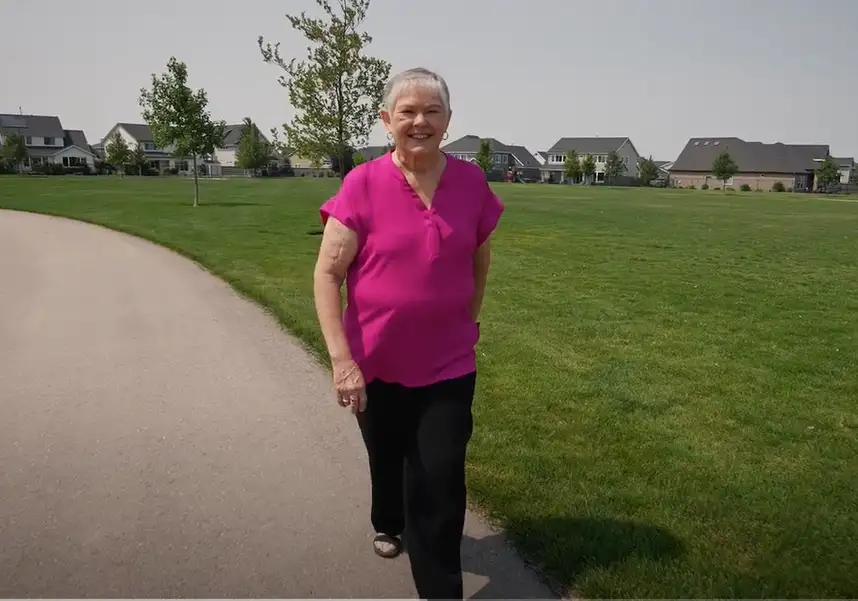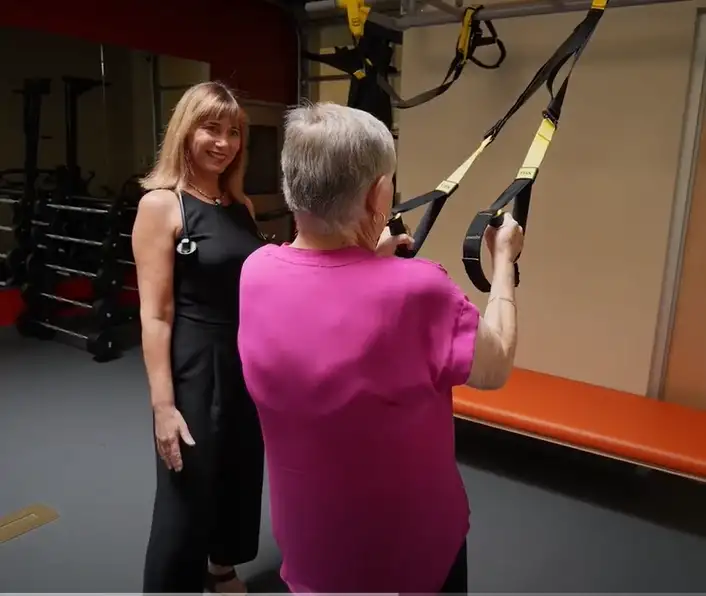“Your results are normal!” The story of how one woman with diabetes and chronic fatigue restored her health
A team of health experts in the St. Luke’s Health System Lifestyle Medicine Department helped Deena Clark make lifestyle behavior changes that relieved her body’s stress.
May 24, 2022

Deena Clark had type 2 diabetes, cirrhosis of the liver and chronic fatigue when she discovered the lifestyle medicine program at St. Luke’s Health System in Boise, Idaho.
The intensive program featured a multidisciplinary health team committed to helping her make sustainable changes to her health habits related to the six pillars of lifestyle medicine defined by the American College of Lifestyle Medicine — nutrition, physical activity, stress management, restorative sleep, positive social connection and avoidance of risky substances.
“At first, it was a little intimidating because I didn’t know what to expect,” Clark said.
It became clear quickly that Clark needed to “jump into the water,” said Jennifer Shalz, MD, DipABLM, medical director of St. Luke’s Lifestyle Medicine Department. Under the care of the St. Luke’s lifestyle medicine team, Clark transitioned to a whole food, plant-predominant diet, addressed her sleep issues and developed a regular physical activity program.
Soon, her energy began to improve.
“The plant-based diet allowed me to reduce my medications,” Clark said. “It had a direct result on my chronic fatigue. It took me awhile to understand the stress that my body was under.”
Clark was fortunate to find a health system committed to integrating lifestyle medicine into its patient care. The World Health Organization estimates that 80 percent of non-communicable conditions like heart disease, cancer, diabetes and stroke are preventable through lifestyle behaviors.
St. Luke’s Health System, a founding member of ACLM’s Health Systems Council, a collaborative learning community of health systems that have actively begun integrating lifestyle medicine programs into their organizations, “had the vision to move into more of a value-based care model,” Dr. Shalz said.
Dr. Shalz, who is board certified in lifestyle medicine, leads the team of experts at St. Luke’s that includes an advance practice provider, exercise physiologist, registered nurse, certified health coach, licensed clinical social worker, registered dietitian, licensed clinical psychologist and nicotine dependence treatment specialist. In addition to an intensive lifestyle medicine program, the lifestyle medicine department offers a la carte classes in the community.
Dr. Shalz said after she educates patients about the pillars of lifestyle medicine and gives them the knowledge and tools to make sustainable lifestyle behavior changes — and patients start to feel their health improvements — their enthusiasm for lifestyle medicine becomes contagious.
“They start reaping the benefits and feeling better and more confident, and they influence other family members and their neighbors,” Dr. Shalz said. “You are throwing this rock in a pond and having an incredible ripple effect on people’s lives.”

Clark said that after participating in Dr. Shalz’s lifestyle medicine program, she was able to do activities that she never could have enjoyed when she felt sick. She will never forget the day that Dr. Shalz called her to share the results of her latest blood work.
“She said ‘Your results are normal!’” Clark said. “And I just started bawling because I was excited and so happy and so grateful.”